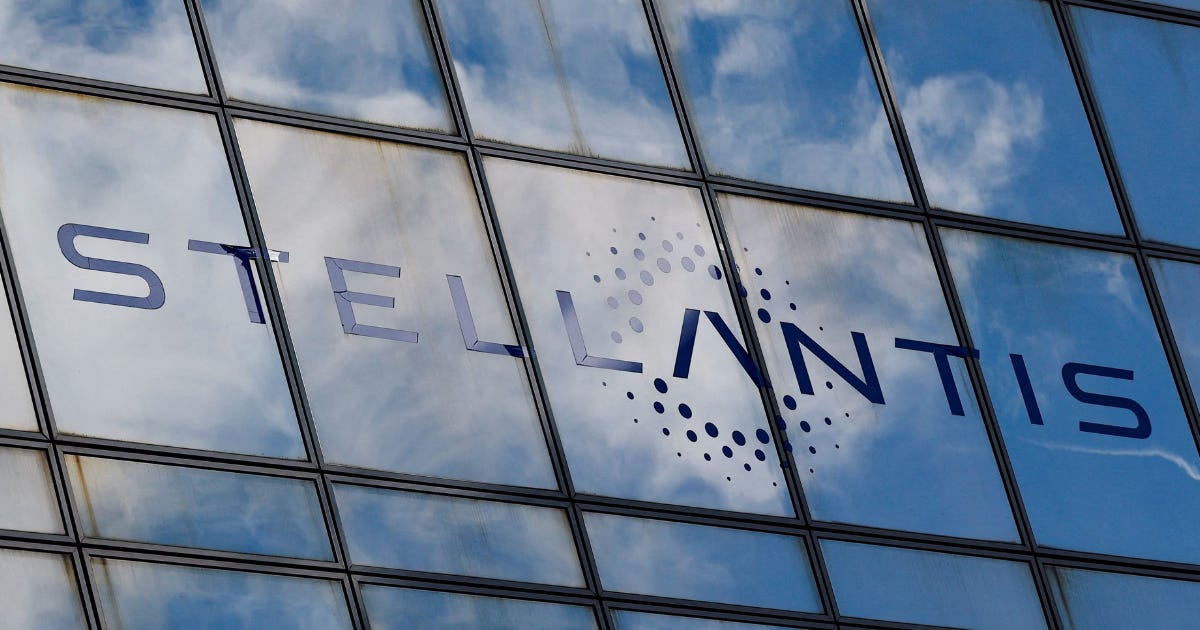Conservatives push to uncover Stellantis deal as Brampton bleeds jobs to U.S.
A deal between the Liberal government and Stellantis is under fire after the automaker announced it would move production of the Jeep Compass from Brampton, Ont., to Illinois.
A deal between the Liberal government and Stellantis is under fire after the automaker announced it would move production of the Jeep Compass from Brampton, Ont., to Illinois, costing over 3,000 Canadian jobs.
Conservative MP Garnett Genuis is demanding answers about the billions of dollars promised to Stellantis.
The move follows a more than $10-billion subsidy package from federal and provincial governments to secure Canada’s foothold in the electric vehicle supply chain. Despite those commitments, Stellantis confirmed this month it will restart its dormant Belvidere plant in the U.S. and abandon Compass production in Canada, citing Donald Trump’s new 25 per cent tariff on Canadian autos as a deciding factor.
“This government cut a multi-billion dollar cheque to Stellantis and didn’t secure Brampton jobs in return,” Genuis told True North. “Now those jobs are going south, and taxpayers are left in the dark.”
On Monday, Genuis introduced a motion at the House of Commons Standing Committee on Government Operations and Estimates, demanding the release of all unredacted agreements, contracts and memoranda between the federal government and Stellantis or its affiliates, dating back to 2015. The motion, now under a Liberal filibuster, requires the documents to be tabled within two weeks and made publicly available in both official languages.
Government MPs attempted to amend the motion to allow for redactions but were defeated, prompting Genuis to accuse the Liberals of “running interference for Stellantis rather than defending Canadian workers.”
Genuis said it’s unclear whether the Stellantis contracts included any binding job guarantees. “If they didn’t, that’s gross negligence. If they did, and the government is failing to enforce them, then it’s a complete breakdown of accountability,” he said.
He added that if the Liberals resist full disclosure, Canadians will have reason to doubt the deal’s integrity. “It would send a message that the government is more interested in hiding embarrassing details than defending public investment,” he said.
Only $268 million in federal money has been disbursed so far through the Strategic Innovation Fund, and the bulk of Stellantis’s incentive package remains untriggered. However, political backlash is growing amid rising concern that corporate subsidies are being handed out without firm guarantees for Canadian workers.
Genuis said the Conservatives would take a different approach to industrial policy. “We don’t oppose investments in the auto sector, but they must be tied to enforceable commitments. We can’t write blank cheques and hope jobs stay here,” he said.
He also tied the decision to the broader trade environment, noting that Trump’s tariffs have reshaped corporate decisions at other manufacturers like Honda and General Motors. “This is about poor planning, bad negotiation, and a government asleep at the wheel while American policy shifts rapidly,” Genuis said.
The fallout from Stellantis’s decision is fuelling a wider debate over transparency and whether Canada’s economic strategy in the EV sector is being undermined by unpredictable trade shocks and lax oversight of corporate subsidies.
“Canadians deserve to know what was promised, what was protected, and why this government failed to deliver,” Genuis said.
In May, Stellantis halted production of theEV Dodge Charger in Windsor.





There was/is a reason these deals were made in secret.
Canada, especially OntArWeOwe are now seeing why.
In Fraud's OntArWeOwe...
If one gets in bed with snakes one should be prepared to be bitten.